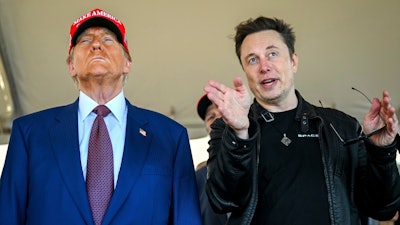
A few days after assuming a new role, Hyundai CEO and President Jose Muñoz was asked by Bloomberg if Elon Musk’s influence on U.S. President-elect Donald Trump concerned him. Muñoz, who spent five years with Toyota, 15 years at Nissan and nearly six years as Hyundai’s global chief operating officer, dismissed worries of any control the Tesla CEO might hold.
“Having someone who is very close to the U.S. industry and EV world, I think it should be positive for the industry,” Muñoz said.
Most Read on Manufacturing.net:
- WATCH: Single Worker Blamed for Recall of 23,000 Kias
- Two Bodies Found in the Landing Gear of JetBlue Plane
- Manufacturing Exec Gets 3 Years for Chill Can Factory Fraud Scheme
- WATCH: Toyota Opening Experimental Futuristic City This Fall
In November, Trump picked Musk and fellow unelected bureaucrat Vivek Ramaswamy to lead the Department of Government Efficiency (DOGE), a new presidential advisory commission designed to regulate government spending.
Trump has criticized a federal clean vehicle tax credit under the Inflation Reduction Act that offers consumers up to $7,500 for eligible new electric vehicles and $4,000 for certain used EVs. The legislation also provides grants for the domestic production of hybrid and electric vehicles. During his campaign, the president-elect promised to end any incentives implemented by President Joe Biden that encourage EV market development.
Hyundai announced in October that it began producing electric SUVs at its $7.6 billion manufacturing plant in Georgia. The automaker expects the facility to create 8,500 jobs and reach an annual production rate of 300,000 electric vehicles. The company broke ground on the site in 2022 and received $2.1 billion in tax breaks and other incentives from local and state governments.
However, Muñoz said the company did not invest in the U.S. because of tax credits and incentives.
“We believe that the U.S. market is the most important for us today,” Muñoz said. “Therefore, investing and localizing is a good strategy. I think we are in a better place today than we were four or five years ago simply because the investment gives us much more flexibility.”
Click here to subscribe to our daily newsletter featuring breaking manufacturing industry news.






















